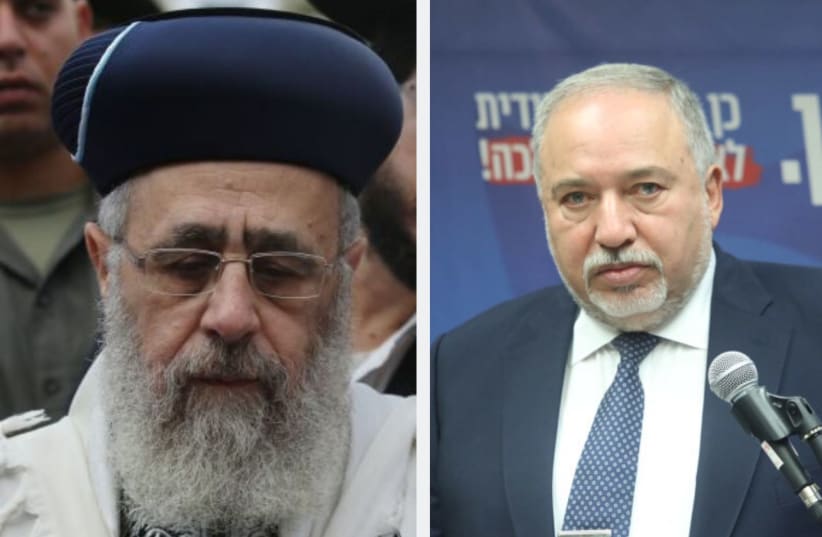Alongside this, we believe that it is important that the ultra-Orthodox public, without harming the religious way of life, integrate into society and contribute its share to the state. Therefore, in favor of those who are unfamiliar with the details or those whose memory has betrayed them, here is the chronology of the events that led to the disagreement.
On January 31, 2016 the government decided to build a common prayer square for men and women in the "Robinson's Rainbow" area, in the southern area of the Western Wall. The outline was formulated by Avichai Mandelblit, then secretary of the Knesset, and Nathan Sheransky, the Jewish Agency's chairman at the time. However, one clear day, on June 25, 2017, due to opposition from the ultra-Orthodox parties and without prior warning, a decision was made to abolish the outline, leading to a severe crisis with Diaspora Jewry.
The next day, on June 26, the Ministerial Committee approved the state conversion law, which transfers the conversion system to the authority of the Chief Rabbinate. Yisrael Beytenu appealed the decision and demanded that the authority to convert be restored to city rabbis. As a result, the Netanyahu-led government decided to set up the "Nisim committee", which passed its recommendations in June 2018, yet to this day the prime minister has avoided speaking on the issue, and he continues to succumb to pressure and threats from the ultra-Orthodox parties.
On September 12, 2017, the High Court rejected the amendment to the Recruitment Law that extended the adjustment period, and rejected the possibility of imposing criminal sanctions on Yeshiva students until 2023. Following a court decision from February 2018, I ordered the establishment of a committee to draft a bill that would be acceptable to all parties and clear the High Court test, which included representatives from the IDF and the Defense Ministry. The committee's recommendations were published in June of that year, and on July 3, the law was first approved by the Knesset plenum. But down the road, the ultra-Orthodox parties assigned their position and were unable to pass the law on the second and third reading.
In 2017, Hassidic Jews from the Gur faction imposed a boycott of the Fenizia factory in Yeruham due to the fact that they operate on Saturday. The Hasidic demand was to turn off the stove on Saturday and re-light it on Sunday, or to throw away the product that was made on Saturday, even if the workers were not Jewish. Both options were not applicable. It is important to remember that the factory has worked in the same place and in the same way since 1968, and the boycott means the closure and dismissal of workers, most of them residents of Yeruham and Dimona, when it is clear that they have no alternative employment opportunities.
On January 9, 2018, the Knesset assembly approved the "marketplace law," which states that "by-laws regarding the opening and closing of businesses on rest days will require the agreement of the Interior Minister." A number of mayors (Modi'in, Rishon Lezion, Givatayim, Herzliya and Holon) decided to approve by-laws allowing supermarkets to be opened on Saturday before the law goes into effect, but Interior Minister Aryeh Deri announced that he did not approve the laws.
To all of these events we add the increasing radicalization of rabbinical statements against the mixing of male and female soldiers in the IDF. On January 17, 2018, Rabbi Shlomo Aviner said that "until there is no complete separation between men and women in the IDF, we must not enlist." Other rabbis joined in his sentiments, one even calling for the resignation of the chief of staff (Rabbi Shmuel Eliyahu). Chief Sepharadic Rabbi Yitzchak Yosef gave his complete backing to these statements, and so I instructed not to invite the three of them to IDF ceremonies until they recanted their statements.
The unilateral moves and the attempt by the ultra-Orthodox parties to harm the status quo and take the ultra-Orthodox public hostage have led to the heated debate over religion and state that accompanies us to this day, and unfortunately, Chief Sepharadic Rabbi Yitzhak Yosef's statements on the immigrant public have only added oil to the fire. It was appropriate that Rabbi Yosef, by virtue of his state role, recant his statements and work for the unity of the people Israel instead of strivig towards division.
Translated by Idan Zonshine.
